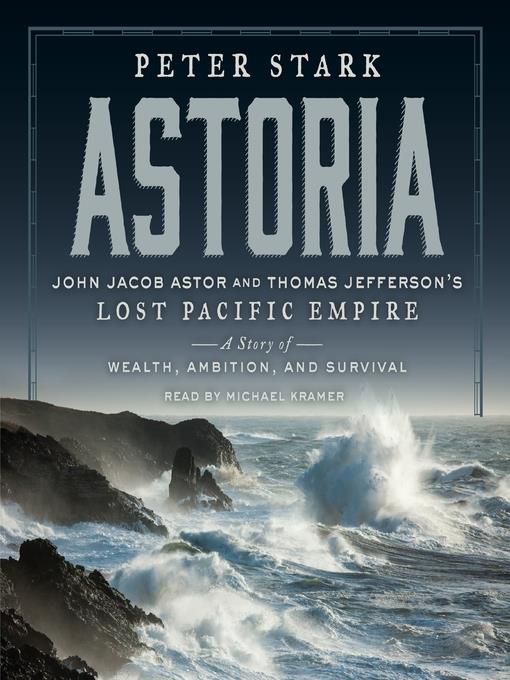
Astoria
John Jacob Astor and Thomas Jefferson's Lost Pacific Empire: A Story of Wealth, Ambition, and Survival
کتاب های مرتبط
- اطلاعات
- نقد و بررسی
- دیدگاه کاربران
نقد و بررسی

Shortly after Lewis and Clark's journey, John Jacob Astor launched his visionary quest to establish a permanent American colony on the Pacific coast. ASTORIA is the breathtaking true story of two traveling parties who went there--one by sea around Cape Horn, and one overland by canoe, horseback, and on foot. Michael Kramer narrates Stark's superb account at a crisp pace. Through Kramer's voice, the listener can imagine bawdy Scottish fur trappers negotiating with Native American leaders and the lively songs of the French-Canadian canoe masters who were capable of paddling for 15 hours straight. Kramer gravely describes the incomprehensible horrors of being lost in a mountain snowstorm for a month and the anxiety of sailors trapped on a capsizing ship controlled by a madman. An epic chronicle. N.M.C. © AudioFile 2014, Portland, Maine

December 23, 2013
At the dawn of the 19th century, America's Eastern coast had largely been settled, but the West remained largely uncharted and undeveloped. In 1810, entrepreneur John Jacob Astor proposed to Thomas Jefferson that Astor start a trading colony in what is now Oregon. In a page-turning tale of ambition, greed, politics, survival, and loss, historian Stark (The Last Empty Spaces) chronicles Astor's mad dash to establish a fur-trading company, Astoria, which would capture the territory's wealth and allow Jefferson to inaugurate his vision of a democracy from sea to shining sea. Astor sent two parties to build his empire, one by sea and one by land. They were to reach the Pacific coast at the same time, but dissension among the leaders of the overland party, as well as Indian attacks and other logistical difficulties, kept it from arriving according to plan. The sea party aboard the Tonquin was scarcely more fortunate. The establishment of the short-lived Astoria coincided with the War of 1812, and in October 1813, Duncan McDougall sold out the trading post to the British. Stark eloquently concludes that though Astoria failed, Astor's vision and drive pushed settlers to establish a Western presence, altering the shape of the American nation.

























دیدگاه کاربران